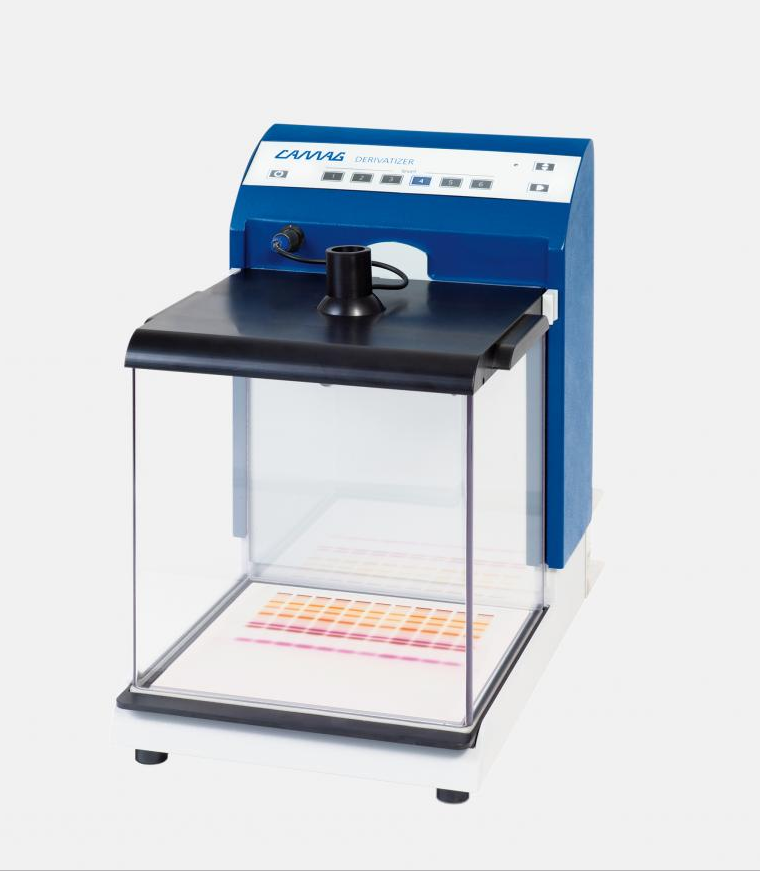
מונוכרום Shift+A
ניגודיות כהה Shift+S
ניגודיות בהירהShift+D
הגדל גופן Shift+F
הקטן גופן Shift+Z
הדגשת קישורים Shift+X
איפוסShift+C
הצהרת נגישות
© כל הזכויות שמורות 2018







הצהרת נגישות
© כל הזכויות שמורות 2018

Automated spraying device for reagent transfer onto TLC/HPTLC plates
Derivatization means another step in the process, consequently causing an increase in variance. Even if an experienced technician manually sprays a reagent, the relative standard deviation (RSD) of the measured values rises up to 12%. Using the Derivatizer, the RSD increases by less than 5%, thus providing very reproducible results, equal to those obtained with the Chromatogram Immersion Device, yet consuming considerably less reagent.
The following most common reagents have been tested and validated by the CAMAG laboratory for use with the Derivatizer:
Sulfuric acid reagent (10 % in methanol)
Anisaldehyde reagent
Natural product reagent
Polyethylene glycol solution
Iodine solution (0.5% in ethanol)
Dragendorff reagent
Fast blue salt B reagent
Ehrlich’s reagent
Phosphomolybdic acid reagent
Ninhydrin reagent Copper (II) sulfate reagent
Aniline-diphenylamine-phosphoric acid reagent
Vanillin reagent
Potassium hydroxide solution (5% in methanol)
Aqueous solutions (enzymatic solutions, etc.)
The Derivatizer is available for two different plate formats (20 x 20 cm and 20 x 10 cm).
For alternative spraying reagents and reagents that are problematic to spray, please download the recommendation list.
For more information about CAMAG Derivatizer